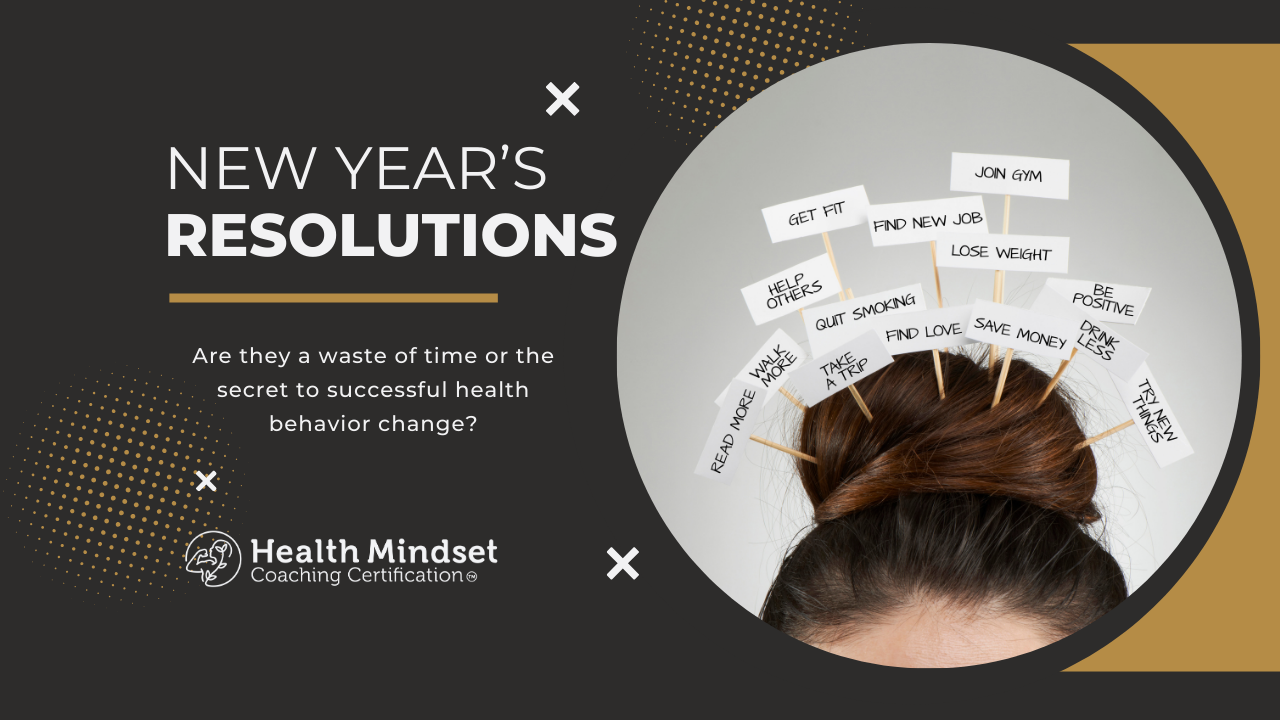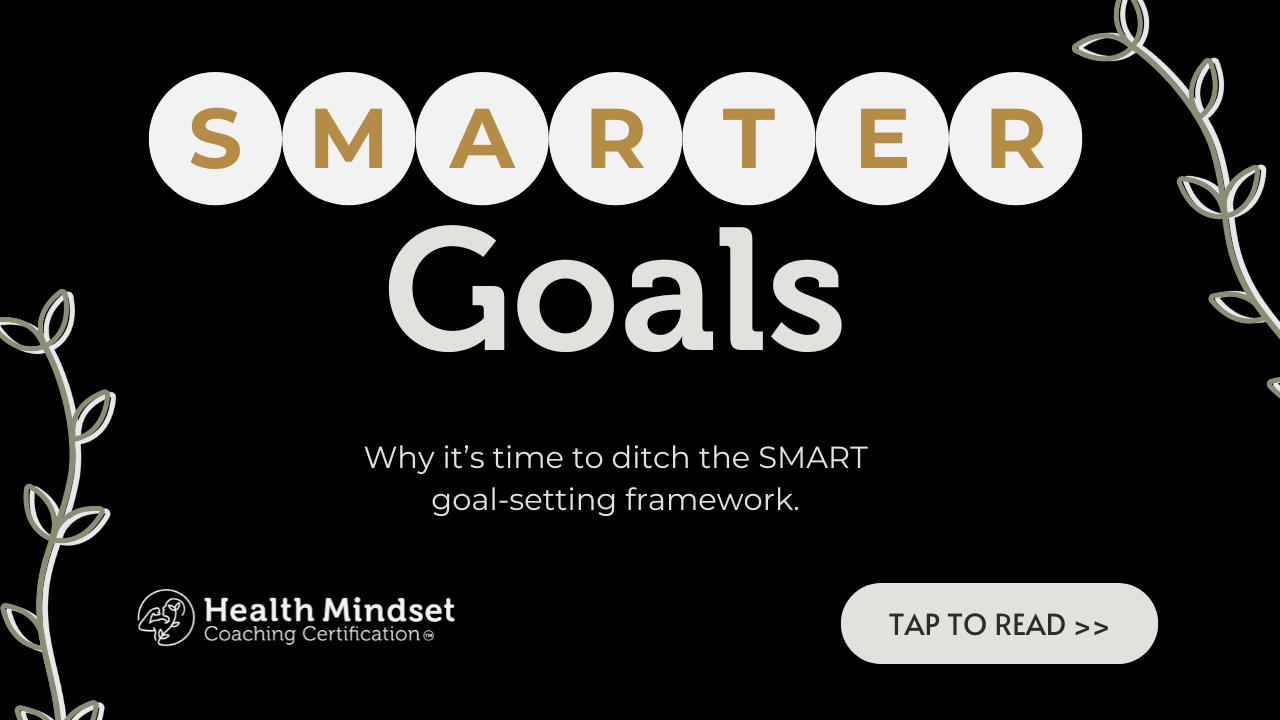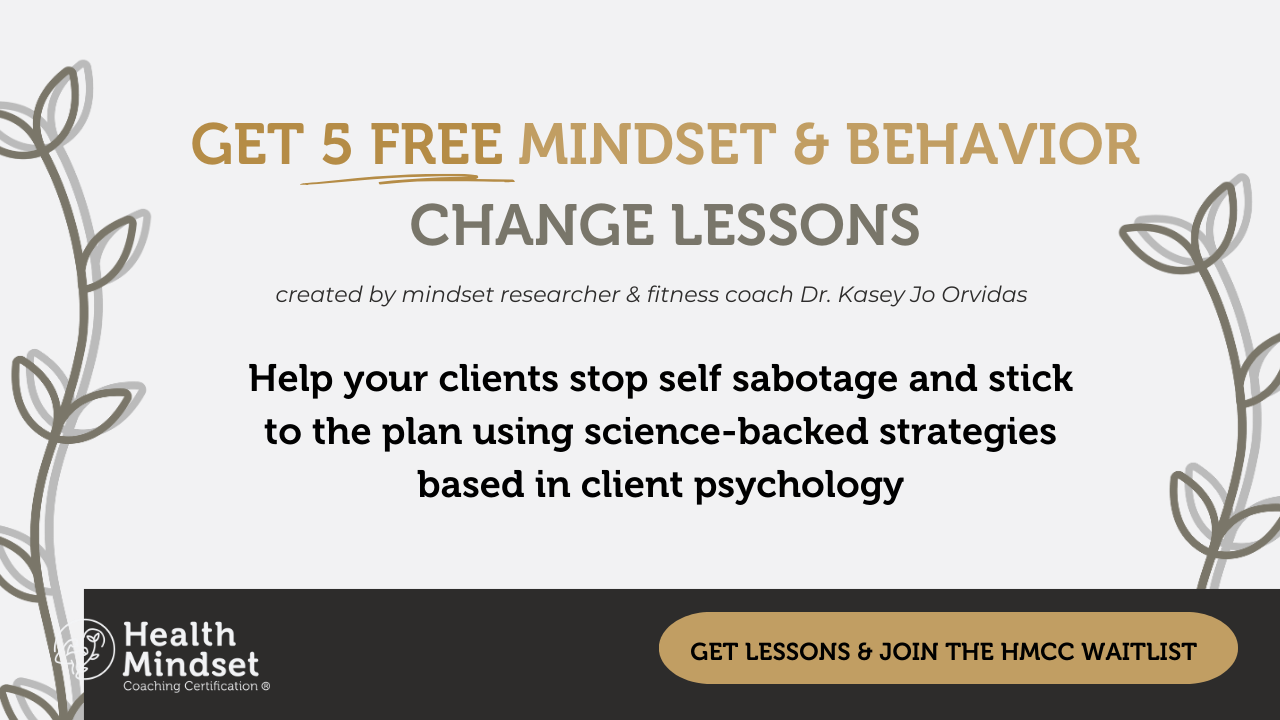Do New Year's Resolutions Work? 4 Simple Ways to Stick to Your New Year's Resolution
Nov 05, 2024
We're getting to that time of year again! It's New Year's resolution season.
As each new year approaches, millions of people set ambitious New Year's resolutions, eager to make big changes like improving their health, advancing their careers, making more money, or achieving personal growth.
But despite the excitement, statistics show that most people abandon their New Year's resolutions by February.
So now everyone seems to be asking two questions:
- Do New Year's resolutions work?
- How can I stick to my New Year's resolution?
If you're a fitness coach, you may be anti-New Year's resolutions, but with the right strategy, focus, and mindset, you and your clients can use resolutions to improve your overall well-being.
I'm not about to give you a to-do list or ideas for what should be on your resolutions list. That's up to you and your clients to decide. I will share here why New Year's resolutions often don't last and evidence-backed ways to make them stick this year!
Table of Contents
What is a New Year's resolution anyway?
The Fresh Start Effect
Why Your New Year's Resolution Failed in the Past
How to Stick to Your New Year's Resolution (Evidence-based Methods)
1. View Your Setbacks as Data
2. Create a Support System
3. Don't Fall for False Hope
4. Address Your Mindset
The Role of Fitness Coaches in a Successful New Year's Resolution
Connect with us!
Sources

What is a New Year's resolution anyway?
A New Year's resolution is a tradition where people set personal goals or commit to positive lifestyle changes at the beginning of the year. Typically, people make these goals around self-improvement, ranging from health and fitness goals like losing weight or learning to manage stress to career milestones or financial objectives.
The idea behind a New Year's resolution is to harness the "fresh start" effect, where the transition into a new year feels like a clean slate, inspiring people to take on new challenges or break old habits.
However, while setting resolutions is popular, keeping them can be difficult, so it's important that we set realistic, manageable goals and have a strategy to sustain them.
The Fresh Start Effect
The start of a new year is powerful! This isn't just my opinion. There's research to back it up.
According to goal achievement research, setting your "start date" for goal pursuits on a day that's meaningful to you increases your chances of being successful.
And the start of a new year is often filled with motivation and excitement to start new ourselves.
Unless you choose to listen to all the IG influencers bashing resolutions and their nonstop chatter about how…
"January 1 is no different than any other day of the year."
"You shouldn't need a new year to start bettering yourself."
"RESOLUTIONS ALWAYS FAIL."
If you believe those things, you probably won't set a goal. (Why would you??) You won't believe in your ability to make a change. (How could you??) And you won't try at all.
There is no best or perfect time to start working toward your goals, but a new month, a new season, or the start of a new year often feels meaningful.
If January 1 feels like a meaningful "fresh" start for you or your clients, you should use that to your advantage.
Researchers have described these points in time as "temporal landmarks," — and they actually do help kickstart some of that ever-fleeting motivation!
The "fresh start effect" initiated during these times significantly increases your chances of getting started (Dai, Milkman, & Ris).
So, ignore the haters, whip out a new gratitude journal, and start setting goals!

Why Your New Year's Resolution Failed in the Past
Despite the initial motivation, many people make New Year's resolutions that don't last.
One major reason is the lack of specificity. Setting vague goals like "get fit" or "save money" without a clear plan makes it difficult to follow through.
You might think setting a goal like "lose 10 pounds" is better, but it's still not specific enough. Sure, you said you want to lose weight, but you didn't say how you're going to go about doing that. You didn't decide what new habit to focus on that would get you there.
On top of that, many people set resolutions that are overly ambitious or unrealistic, which isn’t necessarily a bad thing because I’d rather people “shoot for the moon and land among the stars,” but their mindset has to be in the right place for this.
Speaking of mindset…
People often view setbacks as failures rather than opportunities to adjust (hello, fixed mindset!). And if their mindset isn't in the right place, they'll take any "failure" as a sign that they aren't cut out for reaching that goal and give up.
Finally, a lack of accountability and support can make it hard to stay motivated, which makes it easier to abandon resolutions altogether.
Think about the last time you told your family or friends you were committing to something. Did the fact that they knew you were pursuing that goal act as a little voice inside your head whenever you thought about giving up? Chances are, it did.
If the people in your life expect you to do something, you know that abandoning that resolution will not only be a letdown for you but for them as well.
How to Stick to Your New Year's Resolution (Evidence-based Methods)
So now that we know why people tend to give up on their New Year's resolution, what can we do about it?
There's plenty of research on habits and behavior change out there that can guide us into sticking to our goals and resolutions.

1. View Your Setbacks as Data
Swinging and missing sucks, but you can use it as an opportunity to learn why you missed and how you can be more successful next time. This is an opportunity to practice self-compassion and a growth mindset.
When you learn a new skill, you don't expect to be 10/10 at it right away, do you? So why would you expect behavior change to be any different?
We're so quick to assume we "can't do it" just because we've given up or given in a few times at the start.
Instead of letting this assumption get the best of you, work on reframing your setbacks as nothing but data. Use setbacks as information required to choose a better strategy, be better prepared next time, and increase your likelihood of success.

2. Create a Support System
You've heard hundreds or thousands of times that social support matters, and it really does!
As much as we'd like to think we can do this all out on our own, the people we hang around can really make or break your resolution success after a few weeks.
Make sure you COMMUNICATE your goals with your family and friends and ask them for support.
You can't get mad at your partner for wanting to order pizza every Friday night and say they are encouraging bad behaviors if they have no idea you're trying to lose weight.
Your loved ones want you to succeed, but they can't play a role in your success if they don't even know what you're trying to accomplish.
Hiring support helps, too! Even if you are a fitness coach, you might want to consider hiring a coach to be part of your support system. Having someone to keep you accountable when you get stressed and give you an objective perspective on a situation can significantly impact your success.

3. Don't Fall for False Hope
Many people who give up on their goals do so because of what has been termed "False Hope Syndrome."
It goes something like this:
- You're SO EXCITED to make improvements that you set super high standards for your lifestyle changes...
- Just to find your goals pretty impossible...
- So, you give up just one month in.
This is why it's important to not set overly ambitious goals. I'm all for setting big and sometimes scary goals, but there's a difference between big goals and overly ambitious ones.
Don't let your excitement to change overshadow the actual change.
Try starting small and realistic to get some easy wins, and then once you get started in the right direction, it will be much easier to tackle bigger goals.
For example, if your goal is to run a marathon next year, you aren't going to just get outside and hope you can survive running 26.2 miles. Depending on your experience with running, you might start with a goal to run a single mile, and then five, and then ten, and so on.

4. Address Your Mindset
You can work on tips 1-3 until you're blue in the face, but they won't get you anywhere until you TRULY believe that you can change in the first place. Desire alone is not enough.
If you don't have a growth foundation, this new year's resolution will be no different than the previous ones you've set and fallen off track with.
No matter what you want to achieve in life, whether to lose weight or build an empire, you won't be able to do it until you believe you are capable. Your mindset is everything!
This is why I am so passionate about teaching people, specifically coaches, about growth mindset. A growth mindset is your belief that you can do things even if they are hard and you don't possess the skills at the moment.
The Role of Fitness Coaches in a Successful New Year's Resolution
As a fitness coach, you play a critical role in helping clients turn their New Year's resolutions into lasting habits.
Unlike quick-fix plans or one-size-fits-all programs, you provide personalized guidance and accountability that helps your clients stay consistent.
It's also your job to help clients set realistic, actionable goals tailored to their unique needs and lifestyles, transforming vague ambitions like "get fit" into clear, achievable steps, without ever forgetting the importance of autonomy, of course.
With your expertise, you can guide clients through challenges and help reframe setbacks as growth opportunities.
But you might struggle with mindset right now as well. You might be an excellent coach but lack the knowledge around the mindset of behavior change because it's not as simple as many unqualified coaches on social media would have you think.
If your resolution for the new year is to help people improve their lives and health by improving their mindset to create behavior change, then you'll want to consider the Health Mindset Coaching Certification.
The Health Mindset Coaching Certification can teach you how to help your clients tackle all-or-nothing thinking, overcome self-sabotage, develop self-control, and increase motivation and follow-through (meaning no more getting ghosted on check-in day).
This 13-week program will help you develop the skills to effectively help your clients stick to the plan, stick with you, and achieve long-term success in their health and fitness goals.
Health Mindset Coaching Certification is recognized by the National Academy of Sports Medicine (NASM), the Athletics and Fitness Association of America (AFAA), the International Sports Science Association (ISSA), the National Board of Health and Wellness Coaches (NBHWC), and the American Council on Exercise (ACE) as an approved continuing education provider.
Join the waitlist here, and you'll get immediate access to some free primer materials to get you started!
Check out this episode of my podcast, Not Another Mindset Show, for the research behind setting and sticking to New Year's resolutions.
Check out the original post here.
Connect with us!
Email: [email protected]
IG: @coachkaseyjo @healthmindsetcert
Sources
Dai, H., Milkman, K. L., Riis, J., & Institute for Operations Research and the Management Sciences (INFORMS). (2014). The fresh start effect: temporal landmarks motivate aspirational behavior. Management Science. https://faculty.wharton.upenn.edu/wp-content/uploads/2014/06/Dai_Fresh_Start_2014_Mgmt_Sci.pdf






